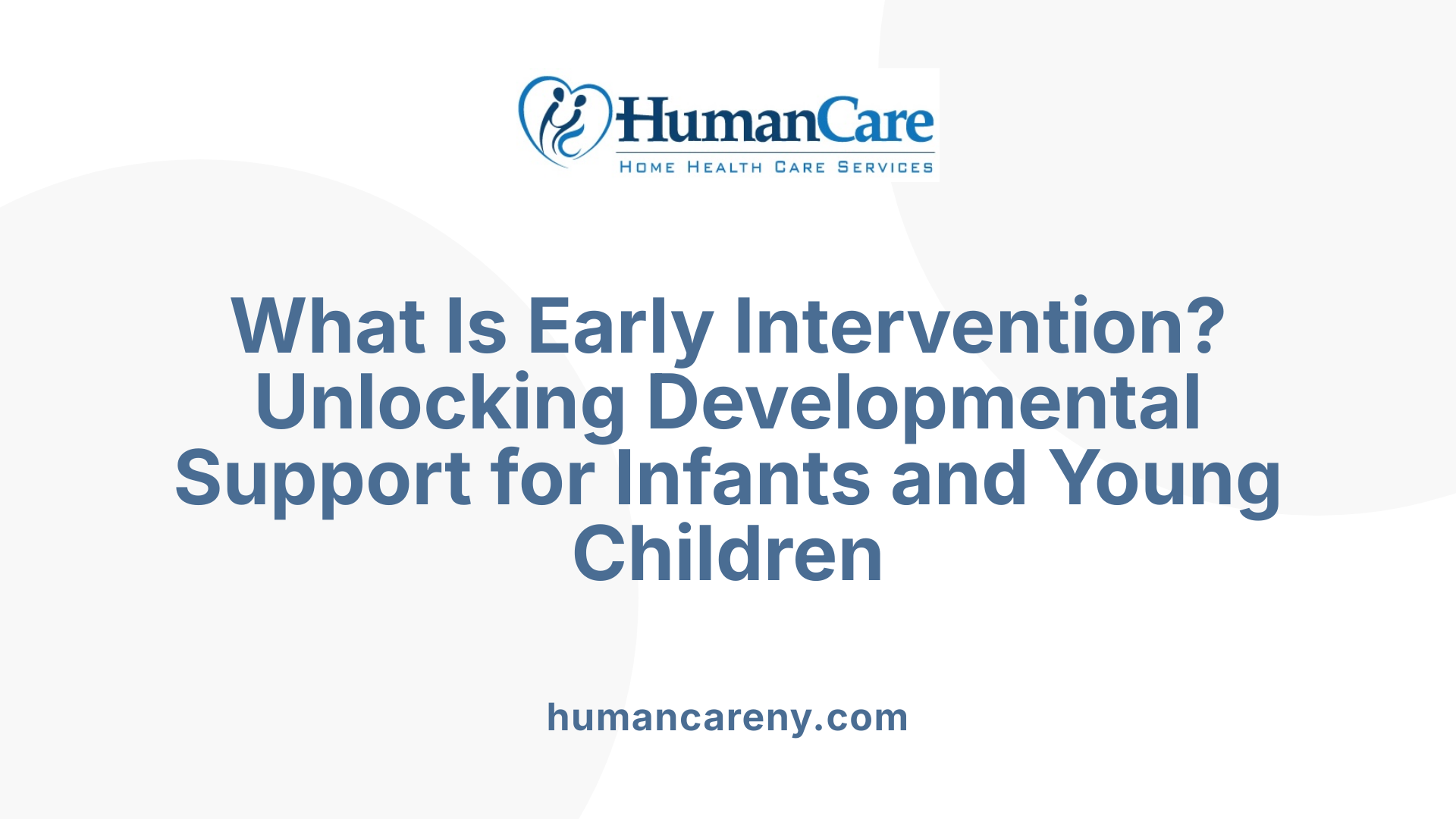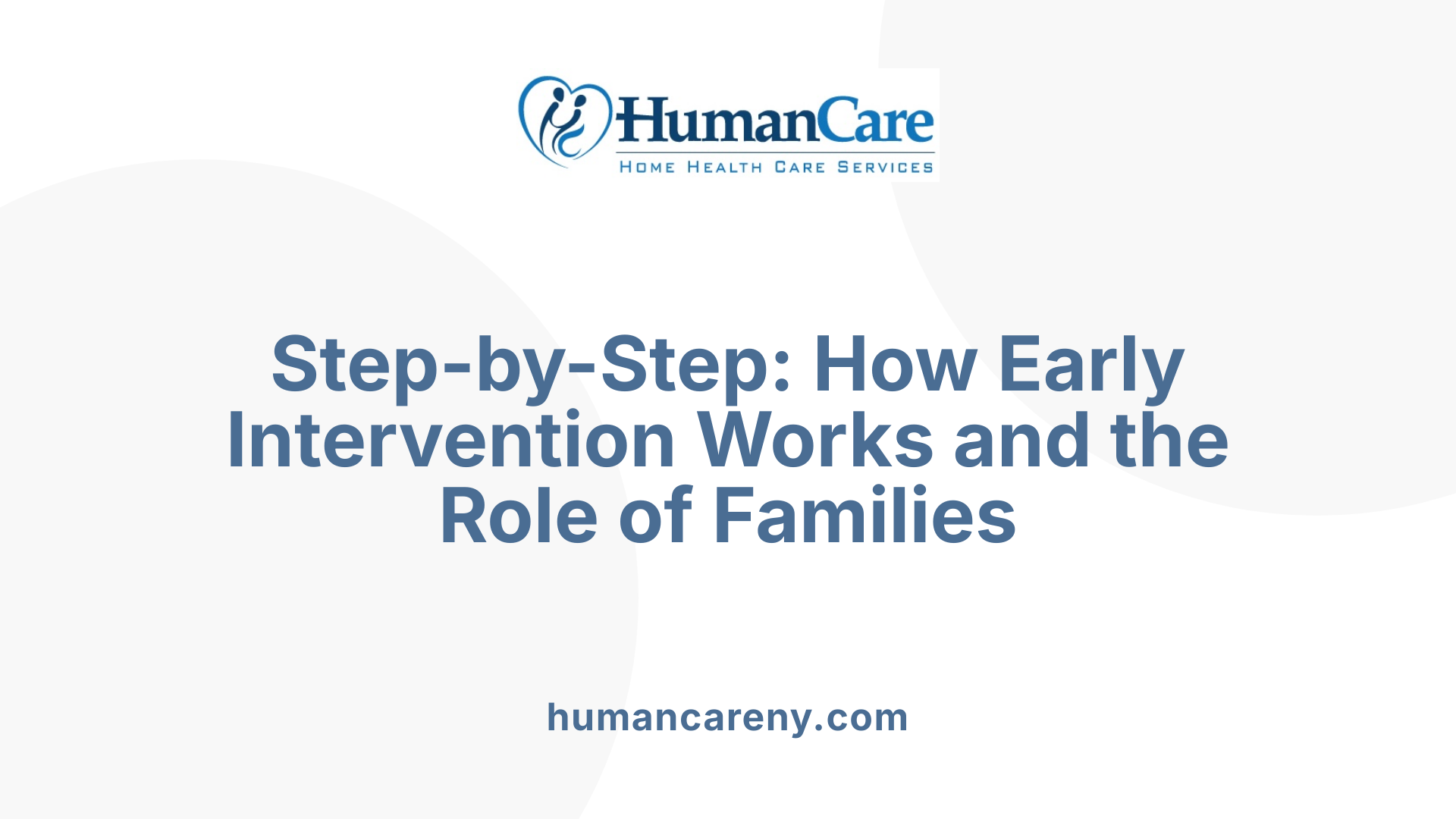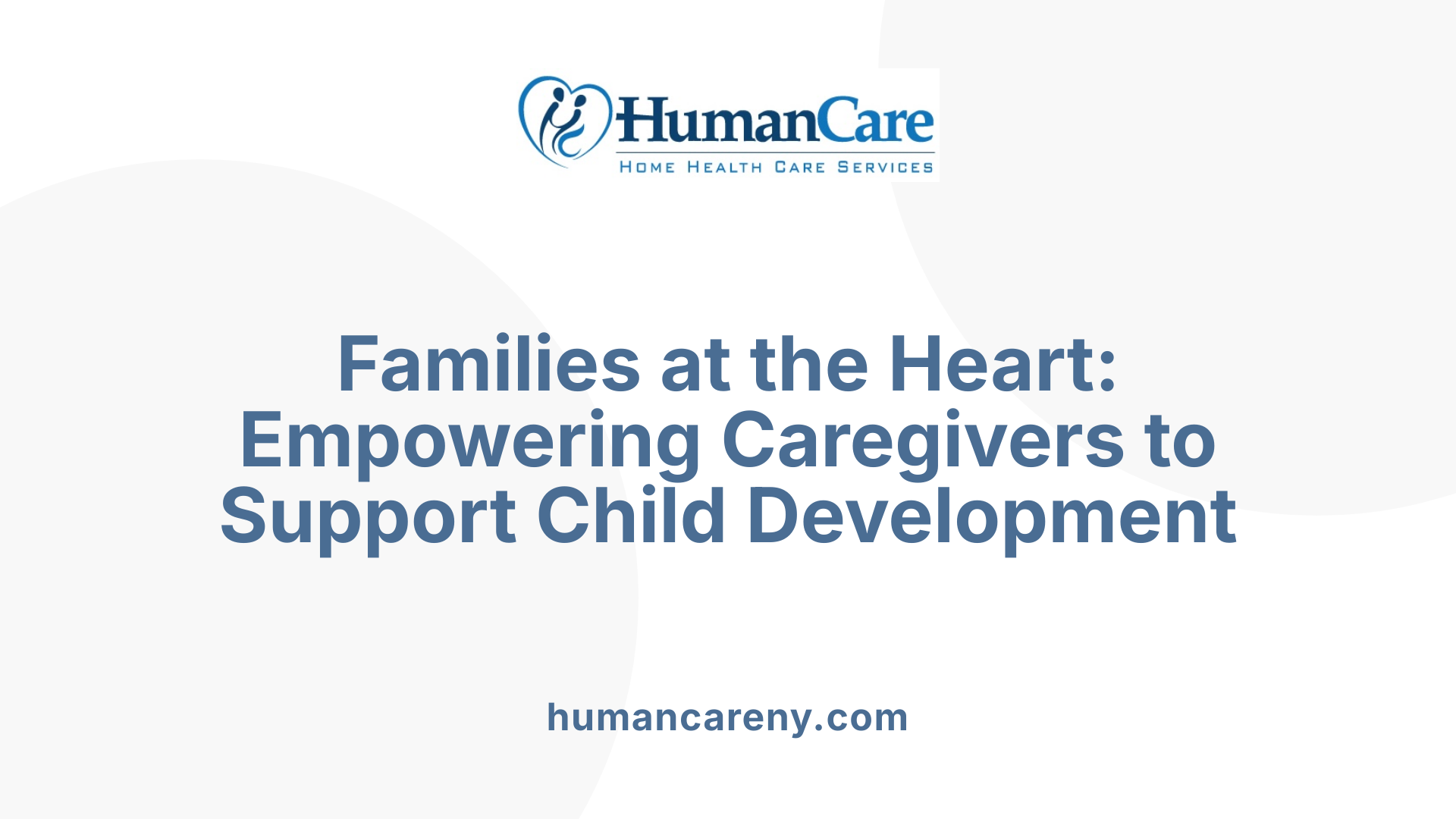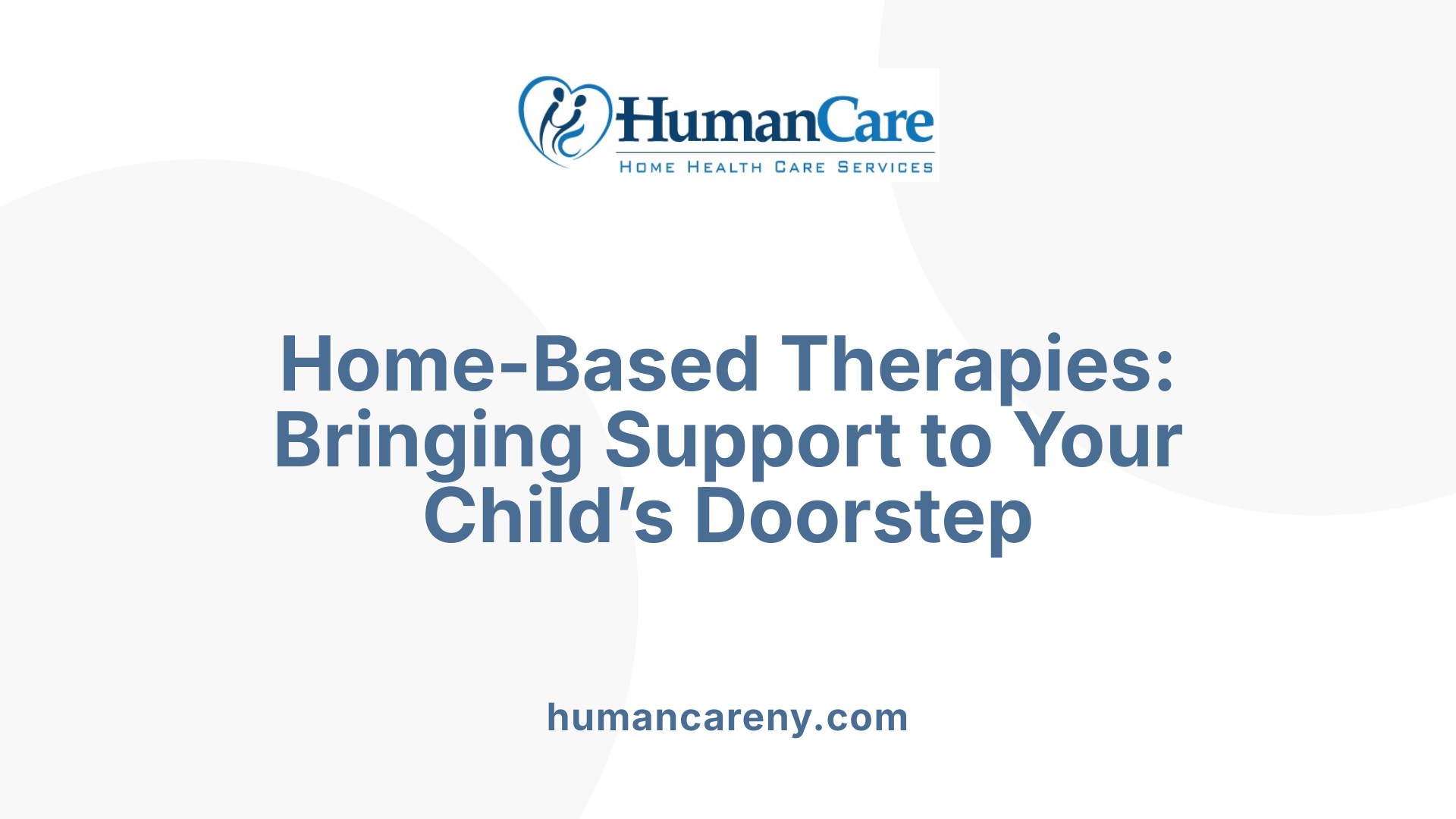Fostering Growth with Compassionate, Family-Centered Approaches
Pediatric home care plays a vital role in supporting early intervention therapies, providing children with developmental delays or disabilities the opportunity to thrive in familiar, comforting environments. By integrating medical services, therapeutic interventions, and family involvement within the home setting, this approach promotes optimal developmental outcomes, easing the journey for families and children alike.
Understanding Early Intervention in Pediatrics

What is early intervention in pediatrics?
Early intervention in pediatrics refers to a broad spectrum of services and supports designed for infants and young children who show signs of developmental delays or have disabilities. These services are personalized, addressing the specific needs of each child and their family. They include therapies such as speech, physical, and occupational therapy, alongside developmental coaching and family training.
Access to these services is vital because the early years are critical for brain development. Intervention during this period can significantly enhance a child's chances of reaching developmental milestones, learning new skills, and overcoming challenges. Most programs are available nationwide and often free or at reduced costs. Importantly, children under age 3 can access services without a doctor's referral by contacting local early intervention programs.
Timely detection and support can improve long-term outcomes, helping children develop communication, social skills, and independence. Ultimately, early intervention promotes better school readiness, personal confidence, and lifelong success.
Comprehensive Examples of Early Intervention Services
 Early intervention programs offer a wide range of services tailored to meet the developmental needs of infants and young children with delays or disabilities, as well as supporting their families. These services include various therapies such as speech therapy to enhance communication skills, physical therapy aimed at improving motor development, and occupational therapy to assist with daily living skills. Support services may also incorporate audiology care, assistive technology fittings, nutritional counseling, and even infant massage. These clinical interventions are complemented by family-centered support, which includes training and educational resources to help parents and caregivers understand how to best support their child's growth.
Early intervention programs offer a wide range of services tailored to meet the developmental needs of infants and young children with delays or disabilities, as well as supporting their families. These services include various therapies such as speech therapy to enhance communication skills, physical therapy aimed at improving motor development, and occupational therapy to assist with daily living skills. Support services may also incorporate audiology care, assistive technology fittings, nutritional counseling, and even infant massage. These clinical interventions are complemented by family-centered support, which includes training and educational resources to help parents and caregivers understand how to best support their child's growth.
Family training programs are a cornerstone of early intervention, providing parents with strategies to incorporate therapeutic techniques into everyday routines. Educational resources, support groups, and coaching help families feel more confident and capable in managing their child's development. Service coordination, often facilitated through Family Service Plans such as an IFSP (Individualized Family Service Plan), ensures that all interventions are tailored to the child's specific needs and are delivered seamlessly across different settings.
Services are available in various environments—homes, daycare centers, or community programs—making support accessible and relevant. In addition, early intervention emphasizes early identification and proactive support, which can prevent secondary disabilities and promote better long-term outcomes in communication, socialization, and independence for children. Through a combination of therapy, family involvement, and personalized planning, early intervention aims to foster growth, stability, and success for children during their critical early years.
The Process of Early Intervention and Family Participation

What is the process of early intervention?
Early intervention begins with a comprehensive assessment of a child's development by a team of qualified professionals. This evaluation looks at various areas such as speech, motor skills, cognitive abilities, social-emotional behavior, and self-help skills. The goal is to identify any delays or disabilities as early as possible.
Following the evaluation, an Individualized Family Service Plan (IFSP) is developed. This document outlines specific developmental goals for the child and details the services and supports needed, tailored to both the child's and the family's unique circumstances.
Services are then provided in settings familiar to the child, such as their home, daycare, or community centers. These services include a range of therapies, like speech therapy, physical therapy, and occupational therapy. The importance of early intervention lies in leveraging the brain's greatest plasticity before age three, which significantly enhances the child's developmental outcomes.
Throughout the process, continuous monitoring and regular reviews ensure the intervention remains effective and adapts to the child’s evolving needs. Ultimately, early intervention seeks to foster development, prevent future challenges, and set children on a positive path for lifelong learning and success.
Role of family and caregivers
Families are central to early intervention. Caregivers and parents are encouraged to actively participate in every step— from evaluation through to therapy sessions. Their insights about their child's behavior and development help professionals tailor programs that fit real-life routines and environments.
Family involvement extends beyond participating in sessions. Families are empowered with training and resources that enable them to incorporate therapeutic techniques into daily routines. This active participation improves the effectiveness of interventions and helps children generalize skills across different settings.
Support groups and educational materials offered through early intervention programs also play a vital role. These resources boost families' confidence and help reduce feelings of overwhelm, ensuring they feel supported and capable.
Creating and implementing individualized plans
The core of early intervention is the development of an Individualized Family Service Plan (IFSP). This plan is created collaboratively, involving family members, therapists, and other professionals. It focuses on the child's strengths and needs, setting achievable goals that are meaningful to the child's daily life.
Implementation of the IFSP involves delivering targeted services in natural environments, reinforcing learning through everyday activities. Regular reviews of the plan ensure that interventions stay aligned with the child's progress and family circumstances.
In essence, early intervention is a partnership between families and professionals, driven by a shared goal: helping children reach their full potential through personalized, timely, and supportive care.
The Critical Role of Families in Early Intervention

What is the role of the caregiver and the family in the early intervention process?
Families are central to the success of early intervention efforts. As active participants, they collaborate closely with professionals to identify their child's strengths and areas needing support. Through tools like the Individualized Family Support Plan (IFSP), families help set tailored goals that address their child's unique needs.
Implementing strategies in everyday routines is another vital aspect. Families are encouraged to incorporate therapeutic techniques into daily activities like play, mealtime, and dressing. This approach leverages natural learning opportunities in environments such as homes, daycare centers, or parks, making therapy relevant and effective.
Empowerment through parent education also plays a significant role. During home visits or coaching sessions, caregivers receive training and resources that build their confidence and skills. This guidance enables them to support their child's communication, social, emotional, cognitive, and physical development consistently.
When families actively engage in early intervention, they foster a nurturing environment that promotes their child's independence, confidence, and readiness for school. Their involvement not only enhances developmental outcomes but also cultivates lifelong skills of inclusion and participation in the community.
Maximizing Outcomes: How Pediatric Home Care Enhances Development

How does pediatric home care facilitate early intervention therapies?
Pediatric home care supports early intervention by delivering crucial therapies like speech, occupational, and physical therapy in the child's familiar environment. This approach helps children feel more comfortable and engaged, making therapy sessions more effective. Therapists can better assess the child's abilities and challenges firsthand, tailoring strategies to fit the child's daily routines. Working within the home allows for real-time adjustments and reinforces skills in natural settings.
Home-based services also remove common barriers such as transportation and scheduling conflicts, making it easier for families to participate consistently. This convenience encourages ongoing therapy, which is vital for progress. Moreover, being in the child's environment helps caregivers understand how to integrate therapeutic techniques into everyday activities.
Ultimately, pediatric home care fosters a supportive atmosphere where families are actively involved. It builds strong relationships and trust between therapists and families, creating a foundation for sustained developmental gains. This personalized, accessible approach enhances early intervention outcomes, contributing to better long-term academic, social, and emotional success for children.
Empowering Children and Families through At-Home Support
Pediatric home care is an integral part of early intervention, providing a holistic approach that blends medical services, tailored therapies, and family-centered strategies within a child's natural environment. This model not only enhances developmental outcomes by offering personalized, accessible, and consistent support but also empowers families to actively participate in their child's growth. As research continues to affirm the lasting impact of early intervention, expanding home-based services in pediatric care remains vital in fostering resilient, confident children ready for future success.
References
- What are the Top Benefits of Early Intervention Therapy for Children
- What is “Early Intervention”? - CDC
- Early Intervention Services - Commonwealth of Pennsylvania
- Early Intervention for Infants and Toddlers with Developmental Delays
- The Benefits of Home-Based Early Intervention Services
- Interventions and Referrals - AAP
- Maximizing Child Health: Top Benefits of Pediatric Home Care ...



